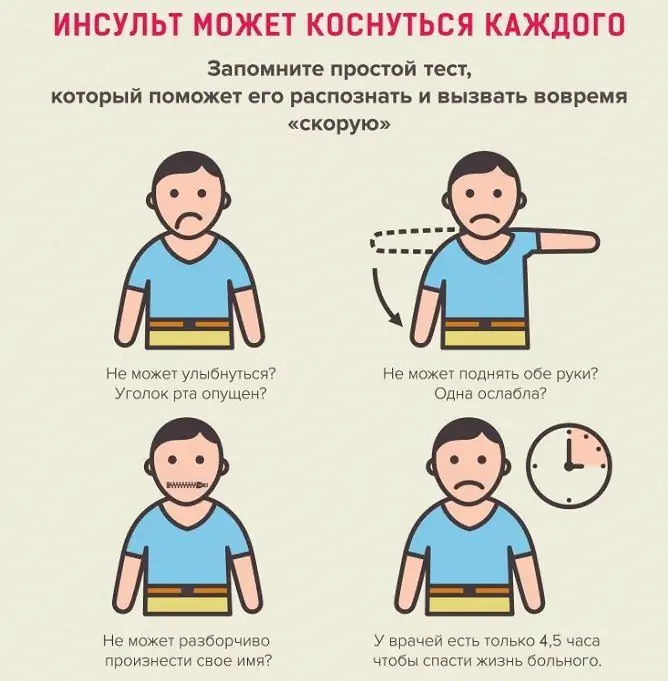- Author Rachel Wainwright wainwright@abchealthonline.com.
- Public 2023-12-15 07:39.
- Last modified 2025-11-02 20:14.
Hepatomegaly

Hepatomegaly is an enlargement of the liver caused by any disease that affects the function of this organ. The liver normally has a soft consistency. Its lower edge is located under the right costal arch. With liver damage, decay products begin to accumulate in it, tissue edema occurs. As a result of this process, the liver begins to enlarge, and it can be easily felt through the anterior abdominal wall during palpation.
With colds, an increase in the liver is often observed. In this case, hepatomegaly does not require treatment and goes away on its own after the patient has fully recovered.
Hepatomegaly of the liver can also be observed in children with a violation of the diet or some autoimmune processes.
Hepatomegaly: causes
All the reasons leading to the development of liver hepatomegaly can be divided into three groups:
1. Diseases of the liver. In this case, damage to hepatocytes (liver cells) is observed, which triggers the mechanism of either tissue edema or its regeneration. The enlargement of the liver due to edema disappears after the inflammation has subsided. With enhanced regeneration of hepatocytes, everything is somewhat more complicated. In this process, only part of the liver cells are restored, and the rest are replaced by connective (scar) tissue. As a result of this, the liver gradually increases in size and becomes bumpy, dense. Various liver diseases can cause hepatomegaly: autoimmune and viral hepatitis, echinococcosis, polycystic disease, cirrhosis and fibrosis, malignant neoplasms, etc.
2. Diseases of storage. As a result of metabolic disorders in the liver, glycogen, iron, carbohydrates, fats and other substances begin to accumulate, leading to an increase in the size of the organ. Such diseases include hepatolenticular degeneration, amyloidosis, fatty hepatosis, hemochromatosis. Many of them are hereditary. But some, such as fatty hepatosis, can occur as a result of general obesity, alcohol abuse, and prolonged use of certain medications.
3. Cardiovascular diseases, accompanied by circulatory failure and leading to oxygen starvation of hepatocytes and stagnation of blood in the liver. The cause of hepatomegaly in this case is the death of liver cells and the development of connective tissue in their place.
Signs of hepatomegaly
The symptoms of hepatomegaly of the liver are an increase in the size of this organ. Patients may notice that they have a protrusion in the area of the right hypochondrium. But more often than not, the first sign of hepatomegaly is a complaint of a feeling of heaviness and discomfort in the upper right quadrant of the abdomen.
As the disease progresses further, the signs of hepatomegaly become more noticeable and unpleasant. Nausea, vomiting, heartburn, yellowness of the skin and mucous membranes, bad breath, petechial rash and itching of the skin join the feeling of discomfort in the right side. The most recent sign of hepatomegaly is the development of ascites - fluid accumulation in the abdominal cavity.
Hepatomegaly: treatment
Since the causes of hepatomegaly are different, then therapy begins only after the exact etiological factor that led to the development of this symptom is established. Treatment of hepatomegaly is carried out only under the supervision of a doctor and is complex.
The goal of drug therapy is to suppress pathological processes leading to an enlarged liver. In addition, it is imperative to follow a special diet with limited fat and carbohydrates. In cases where storage diseases are the cause of hepatomegaly, then those foods that cannot be properly absorbed by the body should be excluded from the diet.
If severe liver failure develops, liver transplant (transplant) is performed.
YouTube video related to the article:
The information is generalized and provided for informational purposes only. At the first sign of illness, see your doctor. Self-medication is hazardous to health!






